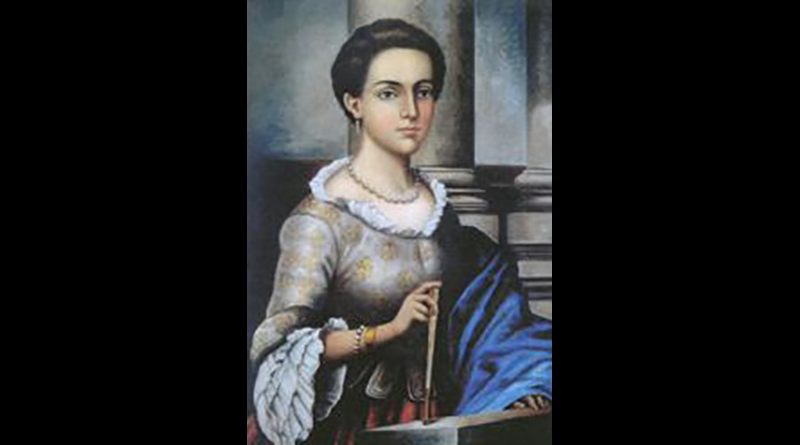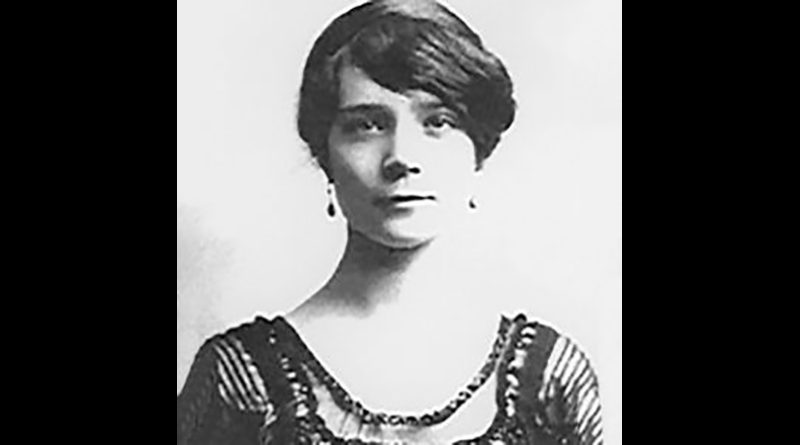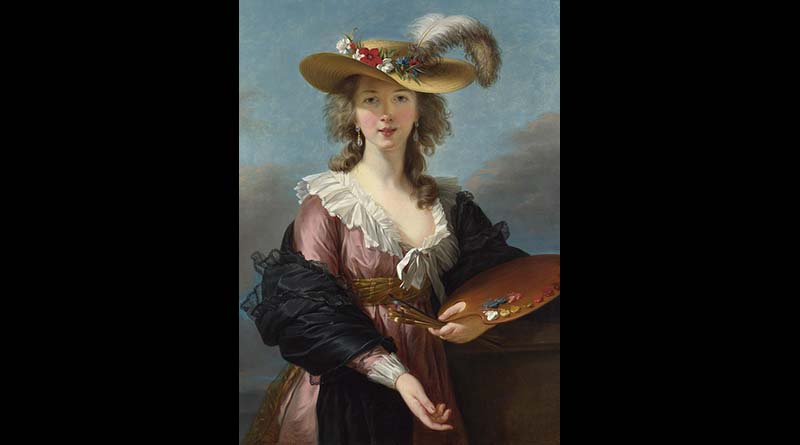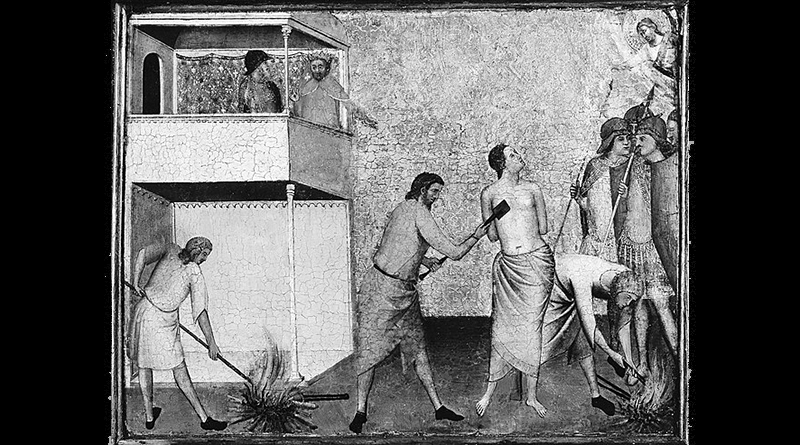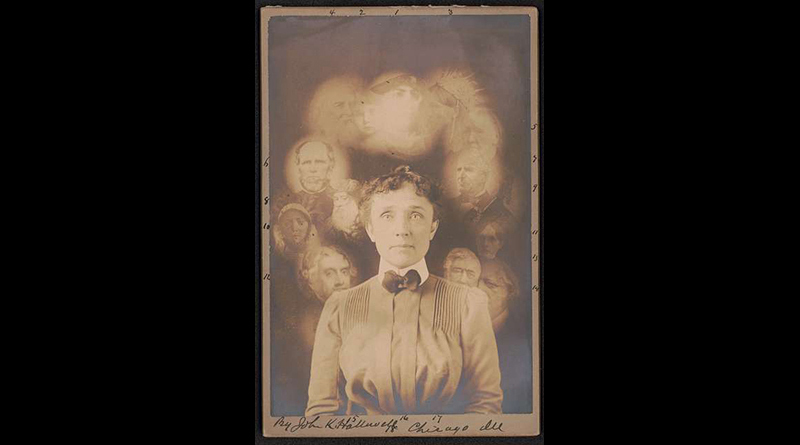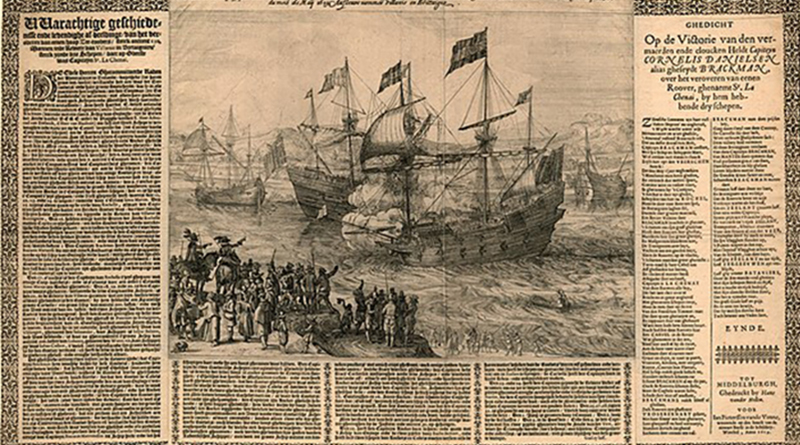Madame Godin [Isabel Godin des Odonais] was the wife of one of the French mathematicians who were sent to Peru, in South America, about the middle of the last century [1769], for the purpose of making some observations there, which should improve our knowledge of geography. She set out from Rio-bamba, the place of her residence, with the design of joining her husband at Cayenne, a distance of thirteen or fourteen hundred leagues. The thought of such a long journey, dangerous and fatiguing as she knew it must be, did not deter this courageous woman. She was accompanied by two of her brothers, and by a physician, who proposed to travel the same road; she had also a male negro servant, several mulatto and Indian women, and a band of thirty-one Indians for carrying her baggage. With this company she arrived at the village of Cannellos, situated on the banks of a small river that falls into the river of the Amazons. This place she found almost deserted; for the small-pox, a very fatal disease among the Indians, had made its appearance, and carried off great numbers of the inhabitants, while those who escaped the infection had removed from the place. At that time the mode of preventing this disorder, by scratching the arm with a sharp instrument previously dipped in the matter of a cow-pock sore, which is communicated from the udder of the cow, was not known. Here the Indians of the escort, who had been paid in advance, left her and returned. What was to be done in this unfortunate situation? To return without a body of men to defend her was impossible; and even had it been possible, yet the hope of reaching the river of the Amazons, where she might find a vessel to convey her to her husband, whom she had not seen for many years, encouraged her to brave all dangers; and she resolved, as did also her companions, to continue the journey.
Only two Indians remained in the village. They had not a canoe, but offered to make one, and conduct the travellers in it to the settlement of Andoas, a hundred and fifty leagues farther down the river. In a short time the canoe was finished, and they embarked; but after sailing two days, having gone ashore to pass the night, the two Indians, who had received their payment before they set out, abandoned the enterprise like the others. In the morning the unfortunate company re-embarked; and, though without a pilot, the first day passed over without any accident. Next day, towards noon, they fell in with a canoe, in which was an Indian who had just recovered from a severe disorder, and who consented to serve them as a pilot; but this poor man, endeavouring to pick up the doctor’s hat, which had fallen into the water, fell overboard, and his late malady having left him in a very weak state, he was unable to swim, and soon went to the bottom. The canoe, being now in the hands of people who could not manage it, soon filled with water; and the travellers were compelled to land, where they built a small rude hut, to shelter them from the weather.
They were now about six days’ journey from Andoas, and the doctor offered to go thither and procure assistance. He accordingly set off, accompanied by a French servant belonging to himself, and Madame Godin’s faithful negro.
After waiting upwards of three weeks, no tidings of the doctor were heard, and the lady and her brothers gave up every hope of succour from that quarter. But being still resolved to proceed, they constructed a raft upon the river, on which they embarked with some provisions and effects, intending to prosecute their journey by water, because they were afraid of losing themselves in the woods. The raft, however, being ill-conducted, struck against the sunken branch of a tree, over-set, and plunged the whole cargo into the river; but as this accident happened close to the bank, no person perished.
Madame Godin, deprived of all her effects by this sort of shipwreck, now found herself in a more melancholy situation than ever she had been before. The company now determined to travel on foot along the banks of the river; and they returned to the hut, took the provisions they had left in it, and departed. They had not gone far, when they found that the windings of the river lengthened their road very much; and to avoid this, they endeavoured to find a passage through the woods, but soon lost their way. Fatigued with so long a march, their feet bruised, their clothes and bodies torn with the briers and thorns, their provisions exhausted, and nothing to allay their hunger and thirst but some wild fruits, their strength failed, and they sat down on the ground, looking for nothing but death. Their expectations were realized, and in a few days they expired one after another, leaving Madame Godin the sole survivor.
The heroic lady lay for forty-eight hours in the midst of the dead bodies, stupefied with grief, and in a state of insensibility. At last she recovered her senses, and found herself tormented with an ardent thirst. Providence, however, gave her strength to make another effort to extricate herself from this terrible situation; but she found herself without shoes, and her clothes were in rags. She proceeded forward with all speed her weak state would admit; and in a short time, to her great joy, she found a spring of water. For eight days she wandered in the woods, living upon wild fruits, and the eggs of wild fowls; but her throat was so contracted by the want of food, that she could scarcely swallow
any thing. The agitation of her mind had such an effect on her body, that her hair became gray.
If a person were to read in a story-book written to amuse, that a delicate woman, accustomed to the enjoyment of all the luxuries of life, had been plunged into a river, and drawn out of it half-drowned; that she had entered into a wood with seven other persons, without a road to conduct her, and travelled in it for several weeks; that she had lost her way, had endured hunger, thirst, and fatigue, and had seen her two brothers and all her attendants, who were much stronger than herself, expire before her eyes; that she had survived all these misfortunes, regained her strength, and travelled in the woods, covered with rags, till Providence sent her unexpected assistance; the author of such a tale would be accused of describing impossibilities.
On the morning of the ninth day Madame Godin found herself on the banks of the river Bobonasa, and she was immediately alarmed by a noise, apparently at a small distance from her.
In the first emotion of her fear she fled back into the wood to conceal herself; but soon considering that nothing worse could happen to her than she had already experienced, she regained the riverside, and perceived two Indians pushing a canoe into the water. She went up to them and implored their assistance in conducting her to Andoas. The humane Indians, touched with her situation, offered to take her into their canoe, and she soon arrived at the place of her destination, where she soon found the relief she expected; her health was soon restored, and she easily found means to join her husband. — From the book Amusing Stories: A Collection of Histories, Adventures, and Anecdotes [1850] (read for free)

